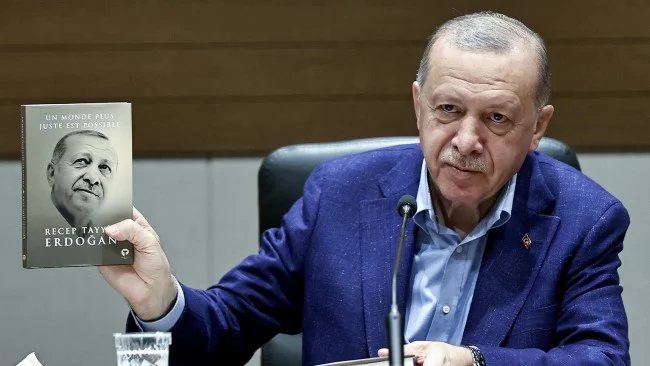Levent Kenez/Stockholm
Things that people are used to seeing in Turkey, which is gradually moving away from democracy and the rule of law, as are often seen in one-man-rule Central Asian countries, include Turkish President Recep Tayyip Erdoğan speaking for hours on news channels, propaganda headlines in newspapers that are almost entirely under government control and giant posters and banners of him hung in popular places all over the country such as sports stadiums. No minister or bureaucrat starts a speech without the cliche, “As per the instructions of our president.”
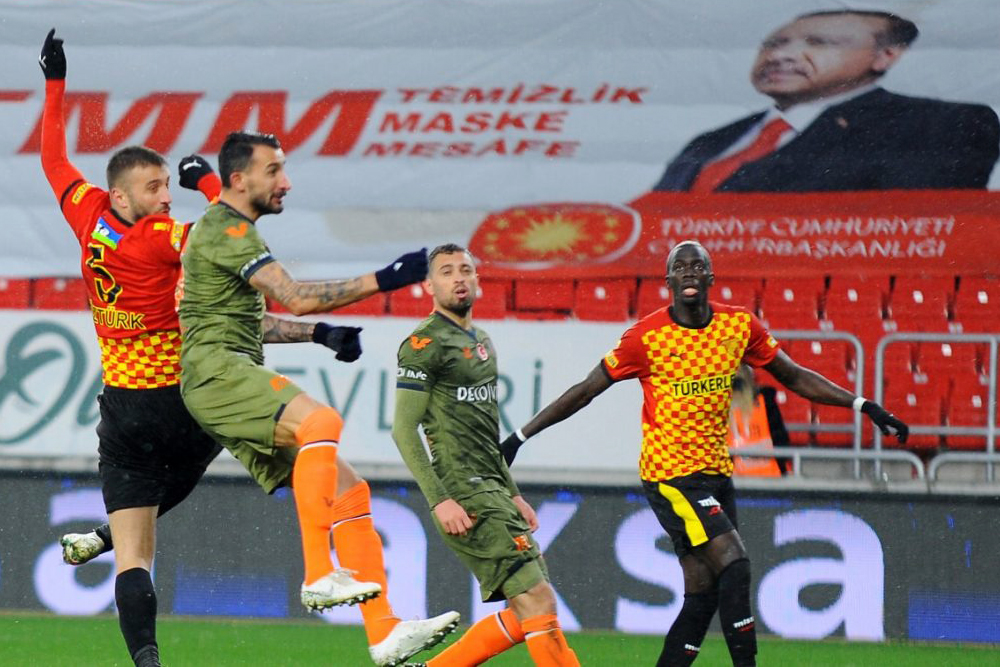
However, these are not enough for Erdoğan’s communications office, which frequently organizes panel discussions and conferences to reinforce Erdoğan’s image at home and abroad. The presidency’s director of communications, Fahrettin Altun, whom the opposition likens to Joseph Goebbels, the infamous propaganda minister of the Nazi era, did not miss an opportunity to promote Erdoğan during the Türkiye Nation Branding Forum at İstanbul’s high-end Maslak TIM Show Centre last week, when he said Turkey’s largest and most powerful brand is Erdoğan, adding that Erdoğan’s brand guides them.
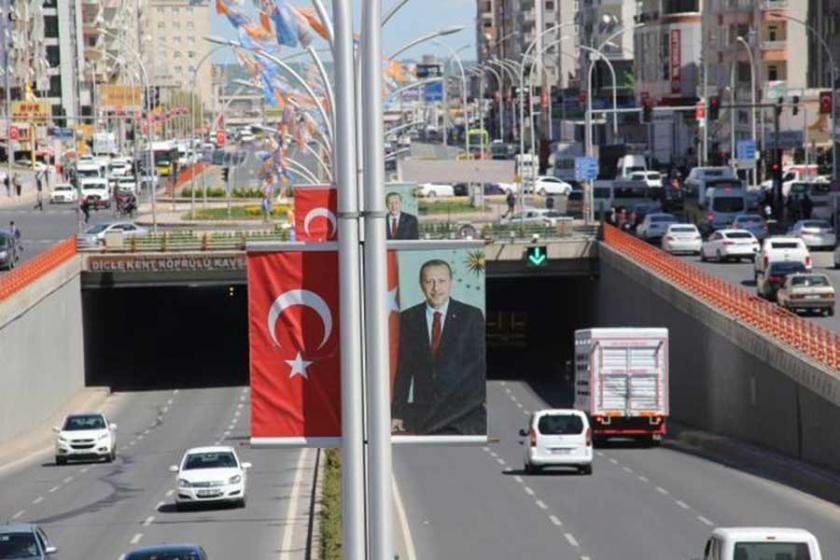
For those familiar with Turkish politics, Altun’s statements are hardly surprising. Altun, who constantly shares flattering messages praising Erdoğan on his Twitter account, is actually known as a “media commissar” in Turkey. On behalf of his boss, he decides what newspapers and TV stations cover and what they do not. He even determines which questions reporters working for pro-government media outlets will ask the president at his rare press conferences.
Most recently, Altun came to the fore over the censored part of Erdoğan’s interview with reporters on the plane returning from Turkmenistan last week. Erdoğan’s statements on the conviction of İstanbul Mayor Ekrem İmamoğlu in a politically charged trial were later revealed to have been removed upon Altun’s instructions. Even ruling party member and journalist Ayşe Böhürler, who asked a question about İmamoğlu, was unable to publish them in her newspaper.
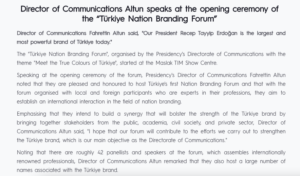
As a side note, Altun’s loyalty to Erdoğan is not just because he works under his command and is ideologically close to him. The financial return for his ties to Erdoğan is also substantial for the Altun family. In addition to being director of communications, he is a board member of the İstanbul Stock Exchange (Borsa Istanbul). He is also on the board of trustees of Turkey’s Manas University in Kyrgyzstan. In a WhatsApp message shared with journalists close to him in 2020, Altun said he spent the income he received from Borsa Istanbul on charity. Altun’s wife, an academic, is not outside this lucrative business. While she works at Marmara University, Fatmanur Altun is also a board member for Turkish Airlines, one of the country’s largest public companies even though she has no experience running such a huge corporation. She is president of the Foundation of Youth and Education in Turkey (TÜRGEV), which is in fact run by Erdoğan’s family members, as a cover to mask shady business deals.
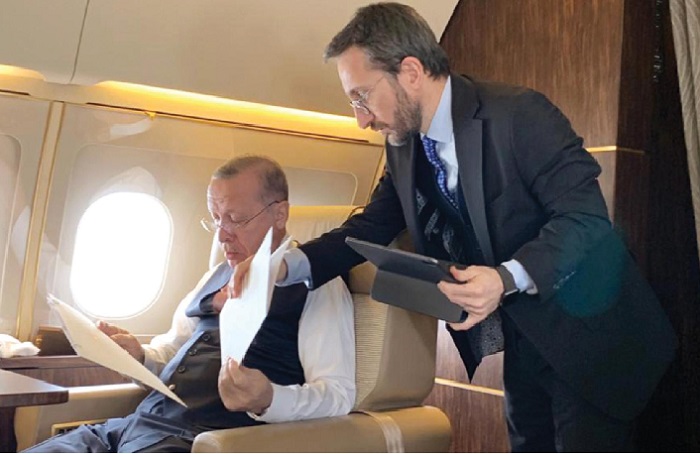
However, President Erdoğan often voices the sentiment, “No matter what the world says…” at his party gatherings and opening ceremonies, an attitude his fervent supporters greatly appreciate. It seems that his increasingly deteriorating image around the world has forced his team to take action. The presidency’s Directorate of Communications last year introduced the “National Public Diplomacy Strategy Paper and Action Plan” aimed at fighting black propaganda and strengthening his and Turkey’s brand.
Altun’s office has so far published dozens of propaganda books, the prefaces of which were meticulously written by Altun. In the books, which could be seen as a waste of paper and taxpayers’ money, topics like Erdoğan’s Africa visits, his proposed reform of the UN, Turkey’s COVID success and the importance Erdoğan and his family attach to the environment are covered.
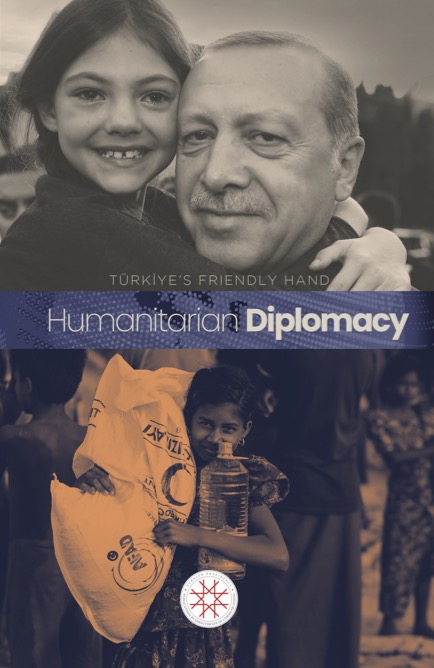
In September Nordic Monitor reported that Erdoğan’s latest book, “UN Reform: A new Approach to International Cooperation,” includes images used without permission. The copyright holder’s logo and watermark can be seen in some of the photographs in the book.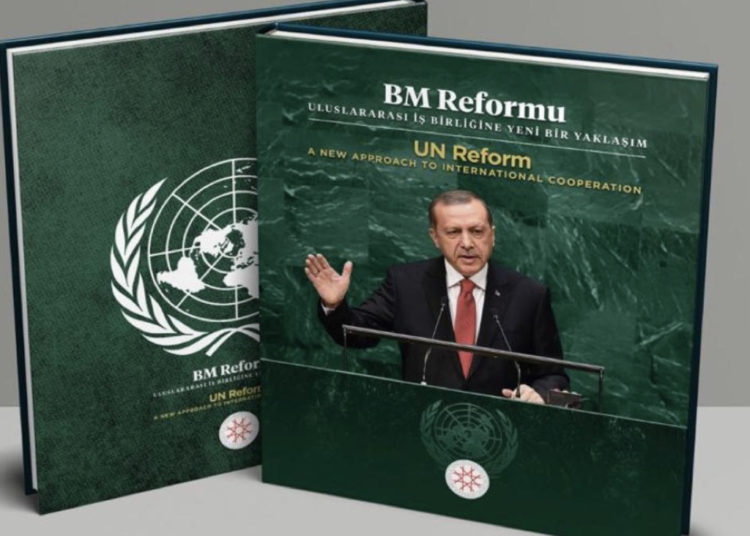
Last year Erdoğan proposed a “revolutionary United Nations reform” before the UN General Assembly with a book titled “A Fairer World is Possible: A Model Proposal for United Nations Reform” and put out by his family’s publishing house, Turkuvaz Kitap. The book, which party members had to buy, was on the bestseller list of several bookstores for a long time.
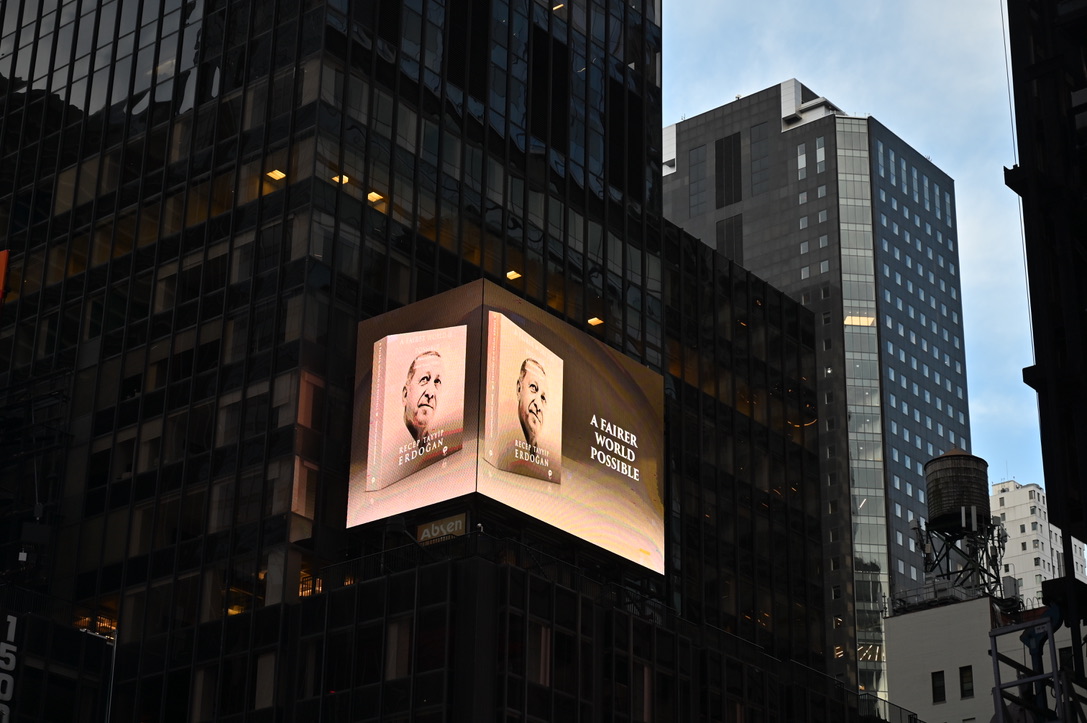
Erdoğan’s communications office announced that Erdoğan’s book was being discussed at a panel held in the European Parliament on November 30. Pro-government NGO representatives were invited to the discussion, which was attended by columnists from the pro-government Daily Sabah newspaper and editors from the state-run TRT.
“Under the moderation of European Union (EU) Communications and Public Relations Consultant Joanna Magdalena, the experts argued that the current structure was unable to provide adequate solutions for emerging threats and exchanged views on the ideas pointed out by President Recep Tayyip Erdoğan in his book, ‘A Fairer World Is Possible’,” his office wrote on its official website.
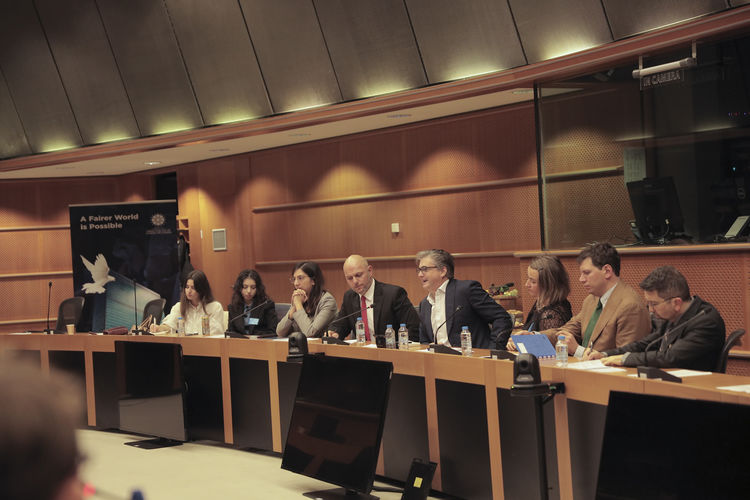
One of the things that Erdoğan’s communications office likes to share the most is photos of the president with other leaders. Pictures that show Erdoğan as charismatic and that reinforce his perception as a world leader are carefully selected. These images are repeatedly shared by party members on social media with messages saying that the opposition does not have an alternative to a strong leader like Erdoğan.
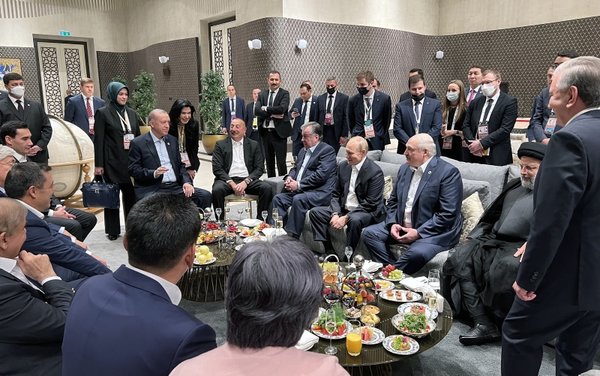
The communications office is currently organizing presidential meetings with young people. It is estimated that approximately 6 million youngsters will vote for the first time in the upcoming 2023 presidential and parliamentary elections. The youth vote will be decisive in the elections, which are critical for Erdoğan and his family. Almost all TV stations broadcast videos of the meetings, which are carefully edited and shortened by Altun’s office, in prime time. For instance, Erdoğan’s last meeting with young party members in Mardin was aired just after the final match of the FIFA World Cup on Sunday. Altun’s office is also busy with the promotion of Turkey’s new products in the defense industry, the military drones produced by Erdoğan’s son-in-law and Turkey’s first indigenous electric car, a few of which at least are scheduled to be on the road before the elections.
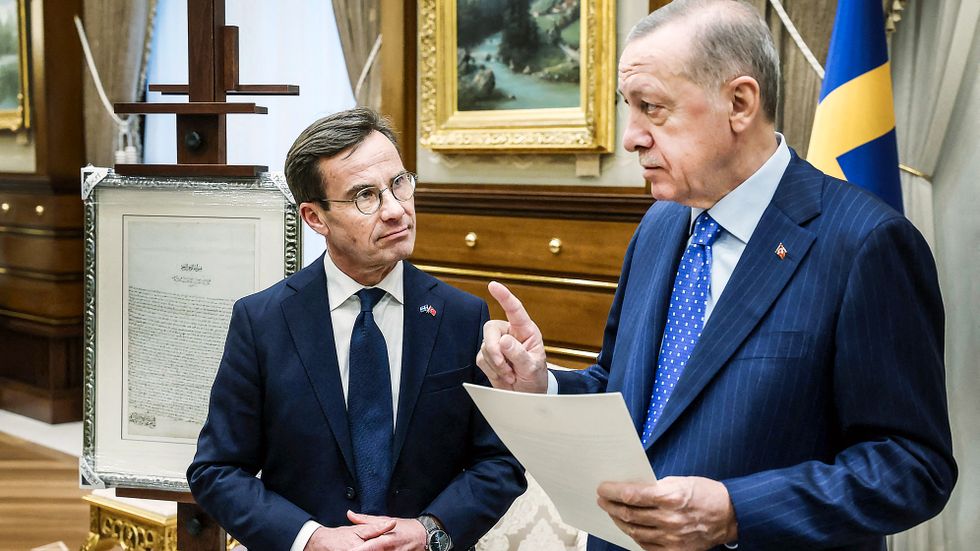
In the meantime Erdoğan-appointed prosecutors are trying to prevent criticism of him on the grounds of insulting the president. According to Ministry of Justice data, the number of defamation cases against the president, which was 110 in 2014, increased to 9,168 in 2021. While only one child under 18 was prosecuted in 2014, that number rose to 305 in 2021. Some 200,000 investigations have been conducted on allegations of insulting the president in the last eight years, of which 44,675 went to trial. Of these, 4,864 resulted in convictions. This situation not only causes fewer negative news stories and social media posts about Erdoğan but also strengthens his image as an authoritarian leader.
Of course, Erdoğan is not Turkey’s biggest brand, but it is a fact that he is the first name that comes to mind when Turkey is mentioned these days in Europe and the Middle East, just like Putin of Russia, Lukashenko of Belarus and Kim Jong-Un of North Korea.

